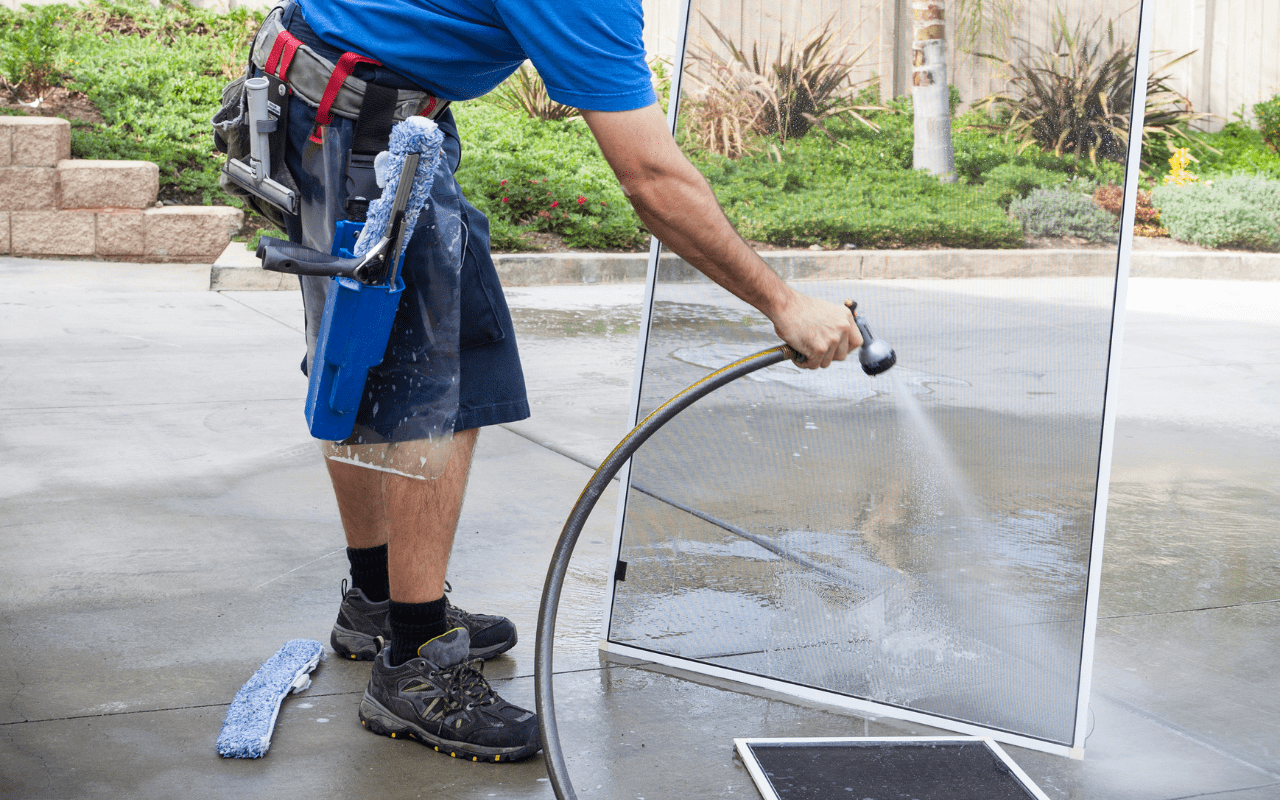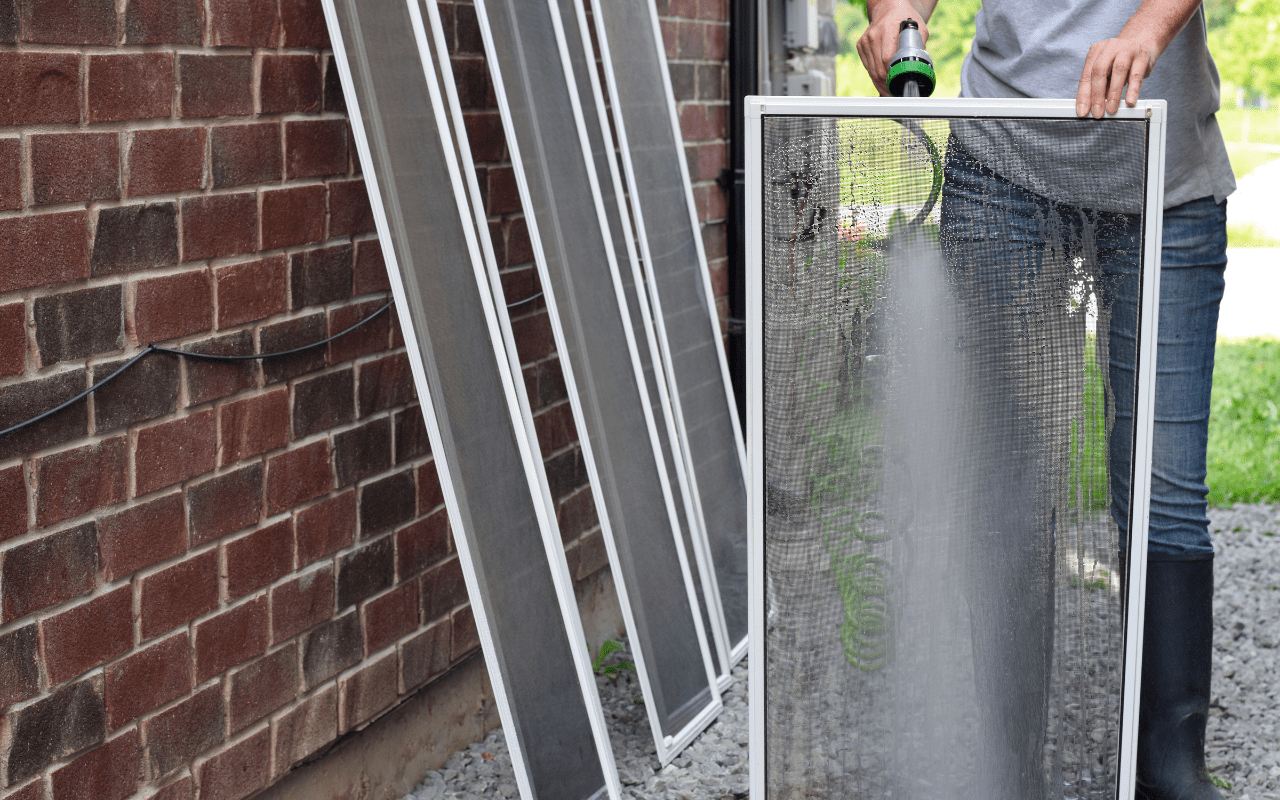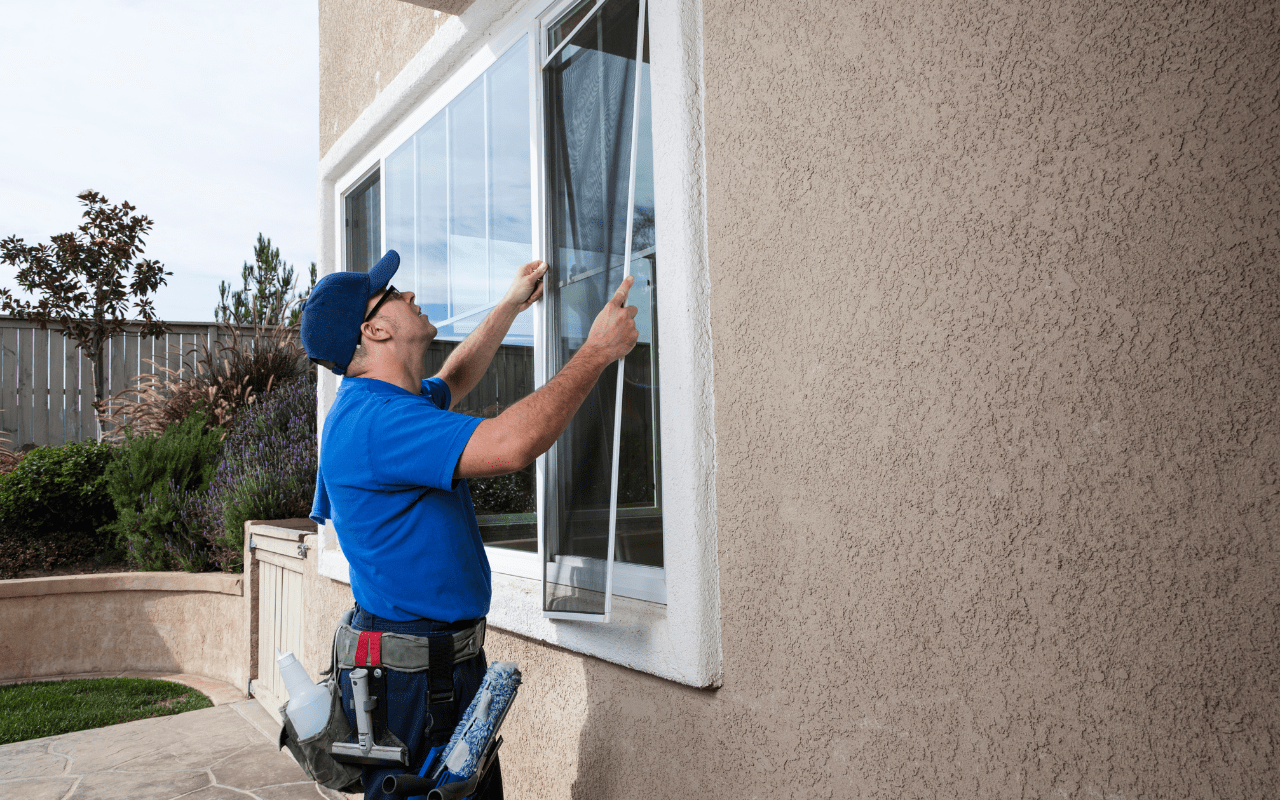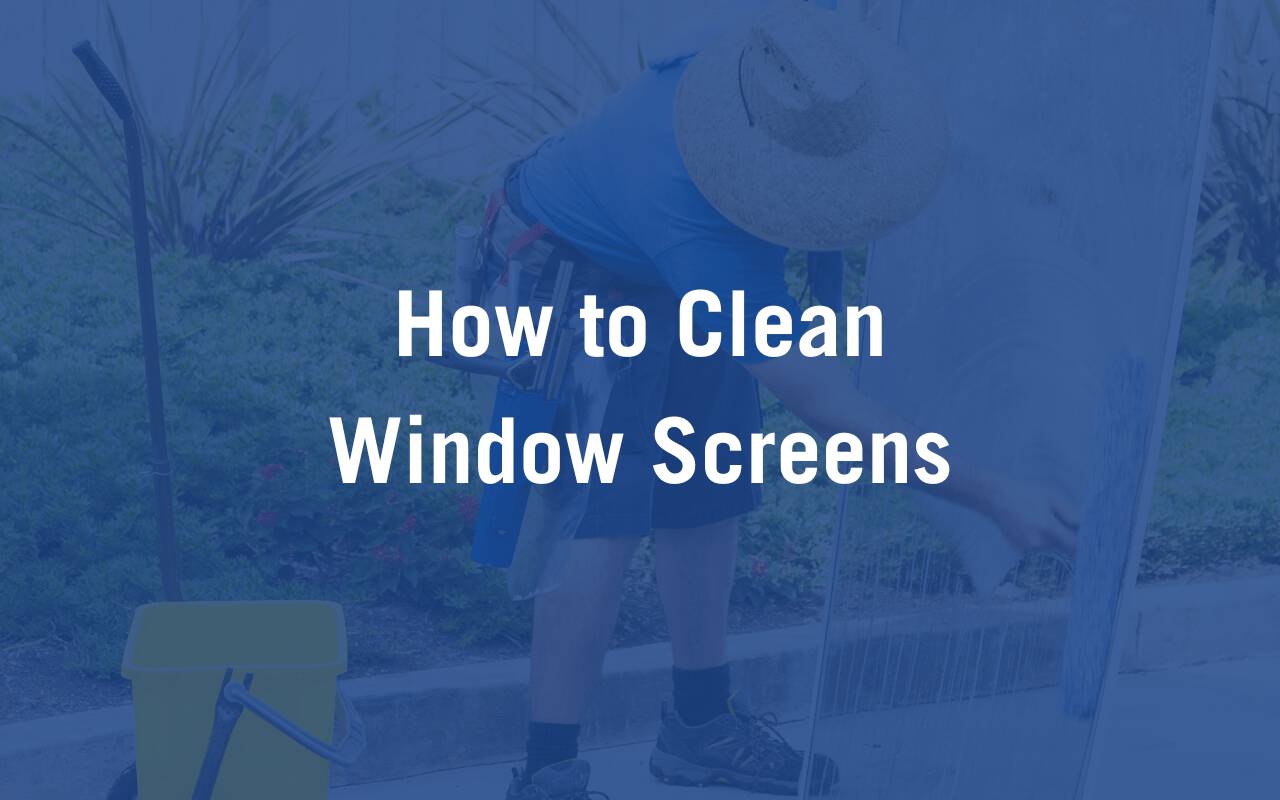Have you ever opened your windows to enjoy some fresh air, only to notice your screens are caked in dust or cobwebs? If so, it’s time to clean your screens. When buildup like this collects, it doesn’t just make your windows look neglected; it can also reduce airflow, trap allergens, and wear down the screens themselves.
Window screens play an important role in both comfort and indoor air quality, so maintaining them is worth the effort. Learning how to clean window screens the right way ensures they last longer, function better, and keep your home looking fresh.

Window screens are an important part of a window. Keep them clean and functional with tips from MEI.
Materials Needed for Cleaning Window Screens
Before you start cleaning window screens, it’s helpful to gather the necessary materials for the process. The good news is, most of what you’ll need is already in your home. Using the materials listed below will make the process smoother and help prevent damage to your screens.
- Soft-bristle brush or sponge
- Mild dish soap
- Bucket of warm water
- Vacuum with brush attachment
- Microfiber cloth or towel
How to Clean Screens Step-by-Step
Cleaning window screens might sound like a big task, but with the right approach, it’s easy and efficient. Follow these five steps, and you’ll have clean, clear screens that let in fresh air without dust and grime.
1. Remove Screens from Windows
Start by carefully removing your screens. This makes the cleaning process much easier and prevents water or cleaning solution from dripping onto your floors or window frames. Note how each screen fits so you can easily reinstall them later. If your screens are large, consider labeling them to avoid confusion when putting them back.
2. Vacuum the Screens
Use a vacuum with a soft brush attachment to remove loose dust, pollen, and pet hair. This step is important because it prevents debris from turning into muddy streaks once you apply water. Work gently to avoid pulling or damaging the mesh.
3. Gently Scrub and Rinse the Screens
The best way to wash screens is to fill a bucket with warm water and add a few drops of mild dish soap. Using a sponge or soft-bristle brush, gently scrub each screen. Be careful not to press too hard, as window screens are delicate and can stretch or tear. Rinse thoroughly with a garden hose or shower head to remove soap residue.

4. Dry the Window Screens
Once you have clean window screens, shake off excess water and place the screens upright against a wall or lay them flat on a clean towel. Allow them to air dry completely before reinstalling. Drying is crucial to prevent mold, mildew, or streaking. Avoid placing them in direct sunlight for extended periods, as this can cause the frames to warp.
5. Re-install the Screens
Now that the screens are completely dry, carefully put them back into their frames. Make sure they’re secure and sitting flush with the window frame. This step ensures your screens continue to keep out insects while still letting in airflow.

Thinking about upgrading your windows while you’re cleaning your screens? Explore MEI’s window replacement options.
Window Screen Cleaning FAQs
While cleaning window screens is a straightforward process, many homeowners still have questions about the frequency, the type of cleaners to use, and why it matters. Below, we’ve answered some of the most common questions. If you don’t see your concern addressed here, the team at MEI is always available to help.
How often should you clean your window screens?
Most homeowners should clean window screens regularly, at least once or twice a year. In places like Minnesota, this is typically in the spring and fall. If you live in an area with heavy pollen, dust, or construction nearby, you may want to clean them more frequently. However, any time you notice buildup on your window screens, it’s best to clean them.
Why do you need to clean your window screens?
Dirty screens block natural light, reduce airflow, and allow dust and allergens to enter your home. Regular cleaning improves indoor air quality, extends the life of your screens, and keeps your windows looking clear. For homeowners considering selling their home, clean screens can boost curb appeal.
What is the best way to clean window screens?
The best way to clean screens is to remove them from the window frame, vacuum away loose debris, gently scrub with mild soap and water, rinse thoroughly, and allow them to dry completely before reinstalling. This prevents damage and ensures the screens stay in great condition.
What is the best cleaner to use for screens?
The best window screen cleaner is a mixture of items you probably already have at home: dish soap and warm water. Harsh chemicals or abrasive cleaners like bleach or detergents can damage the screen mesh and frames, so it’s best to stick with gentle solutions.
Reach Out to MEI with Any Window Replacement or Installation Needs
Now that your screens are fresh and clean, take a moment to inspect your windows closely. Did you notice any cracked frames, foggy glass, or drafts from your windows while removing or re-installing your screens? These are signs it may be time to consider window replacement or repair to avoid future issues.
At Minnesota Exteriors, we specialize in window replacement and installation services that improve your home’s comfort, energy efficiency, and curb appeal. Whether you’re looking for new windows, other exterior improvements, or just have questions, our team is here to help.


